

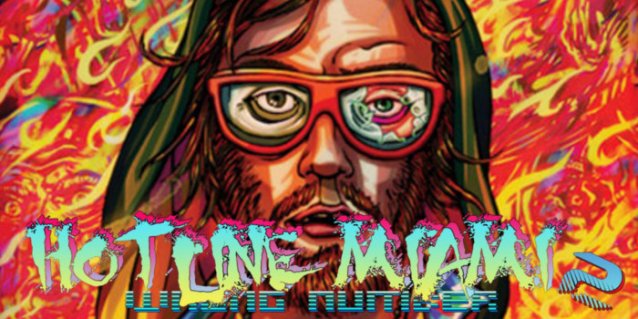
The sequel to the surprise cult indie hit Hotline Miami has arrived and as with the original, it is a doozy. The series is one for whom pain is another word for its name. It is brutal, unforgiving, relentlessly merciless. It brings to mind an era of gaming when developers used challenge and skill to extend gameplay value, as opposed to achievements and collectibles. It is uncomplicated, easy to learn, and inspires a boldness antithetical to the many methodical strategy and stealth based games so widely popular today. It is also incredibly violent, drawing largely on 80s slasher films and touching on a number of tropes and themes associated with them. Players use a simple but incredibly fast paced combination of stealth and combat, equipping a variety of items from melee to guns to ranged weapons. With each chapter of the six-act story, a new mask is donned, bringing with it unique abilities and challenges in clearing the level. With each mask, comes a new form of intense, pixel-shattering violence and all new ways to maim, pummel, and shoot your enemies.
How to interpret the subject matter of Hotline Miami 2 is a topic that has perplexed me since the controversy regarding the opening sequence’s depiction of rape first emerged. While on one hand I find that casual illustrations of sexual assault contribute to the permissiveness and ease with which it is perpetuated, the same doesn’t seem to be true of “general” acts of violence. There are social safeguards that keep many people from casually committing most types of crime, whereas rape and sexual assault are typically treated as a game, one with unwritten rules and technicalities designed to rig the system against victims. It merits, then, that the two are treated differently in entertainment media, so as to not reinforce this dichotomy.
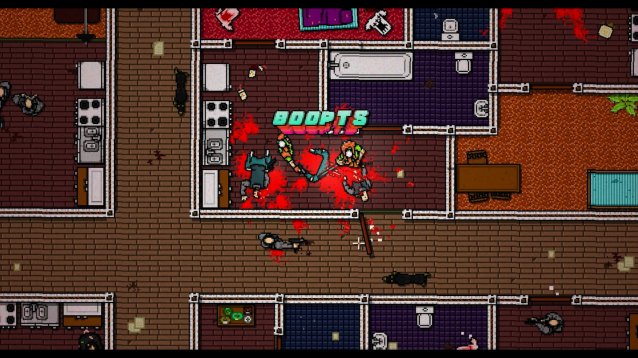
Still, it seems almost unusual to zero in on Hotline Miami when so many other games (and ones with a wider, more easily impressionable audience) feature intense violence. Why focus on this one? Does it invite the criticism by being self referential and superficially reflective on the nature of violence in entertainment? Or does the premise, in which the player is not asked to even pretend to be the hero, make people uneasy? To me it seems more honest to frame the protagonists as villains, instead of trivializing murder with cartoonish aesthetics and justifications as thin as tissue paper.
So where does that leave the game in terms of social impact? Sure, it is merely one piece of a greater jigsaw puzzle and could never shoulder the greater picture alone. Yet the puzzle would still be incomplete without that piece, no matter how small. Perhaps it is equally a product of its environment while contributing to the cycle that bonds and associates the two.
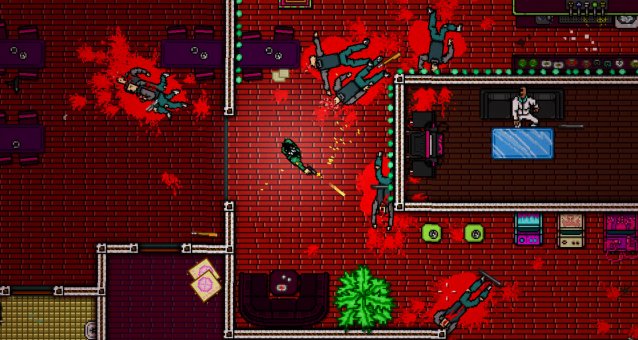
Regardless of the conclusion, I’m not sure Hotline Miami 2 really bothers me. Or rather, I don’t feel guilty for playing Hotline Miami 2, despite any heavy handed lecturing on the part of the developers. I don’t play video games because I enjoy violence or wish to hurt people. Rather, I enjoy a skill-based challenge and in video games these are frequently framed in a violent context. I think this distinction is very important. The satisfaction I derive from Hotline Miami 2 has nothing to do with simulated murder, and everything to do with the mercilessly fast paced and unforgiving gameplay. I could enjoy it in the absence of weapons and combat.
Hotline Miami is also delivered with a brand of 80s tough-guy campiness that is difficult to take seriously. However, in its slick and stylized presentation, it is afforded a sexiness that frames its violence as edgy, even cool. This juxtaposition of glamor and violence and its support of the strong association between the two should not go unnoted, as it is problematic. Many folks don affectations of thuggish bravado to evoke an image of cool, and it does lead to actual violence. Hotline Miami in some small way contributes to this, though I doubt we’ll see any obsessed fans devote themselves to a life of crime anytime soon.
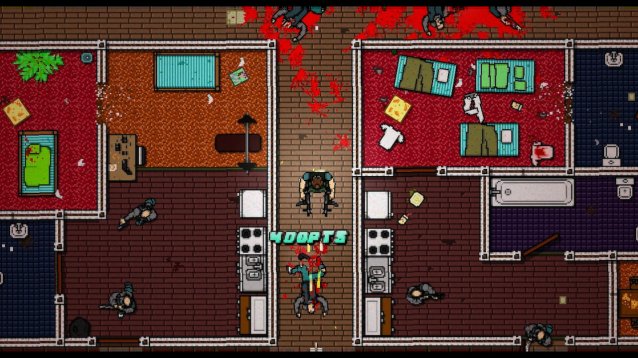
As for the rest of the game, you’ll find that Hotline Miami 2 is very good at being another Hotline Miami. The music is a masterpiece, each track instantly setting your internal clock to the frenzied pacing of the level. The narrative, with its flashbacks and out of sequence events, is hard to follow but it does prop up the sense of surreality that pervades the game, and the pixel artwork, though gaudy, is vivid and well-used, successfully evoking the era from which the theme and subject matter draws. Some have complained that the game is too difficult, but I think its careful mix of strategy, timing, and boldness makes for enormous fun.
It seems a bit dishonest for the developers to create a scenario wherein violence can be consumed in a palatable way, then almost blame the player for enjoying it (no, I don’t “like to hurt people”). Certainly the responsibility lies more with those who curated this psychologically persuasive experience rather than those who fall for it. Nonetheless as you play, keep in mind how making violence fun and sexy contributes to harmful behavior in the real world. Hotline Miami 2 is fun and of course, that is part of the problem. Enjoy the addicting, head-bobbing soundtrack, feel the intense rush of adrenaline as after failure after failure victory finally sets in. But while you do examine how you’ve come to associate danger and violence with cool and how it shapes your views on the social acceptability of male aggression.
Hotline Miami 2 was developed by Dennaton Games and published by Devolver Digital. It was released on March 10, 2015, at the MSRP of $14.99. A copy was provided by the publisher for the purposes of review.

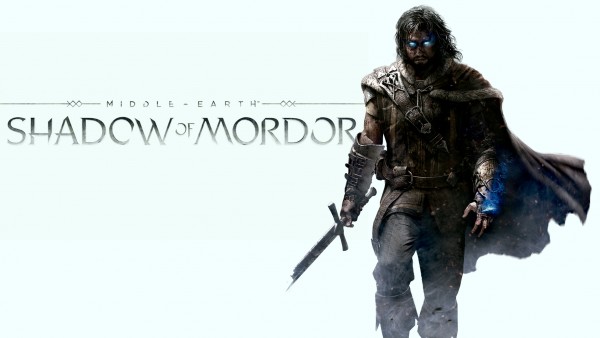
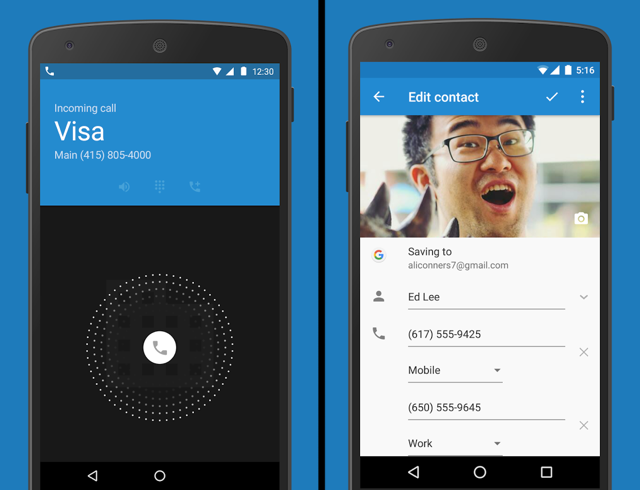
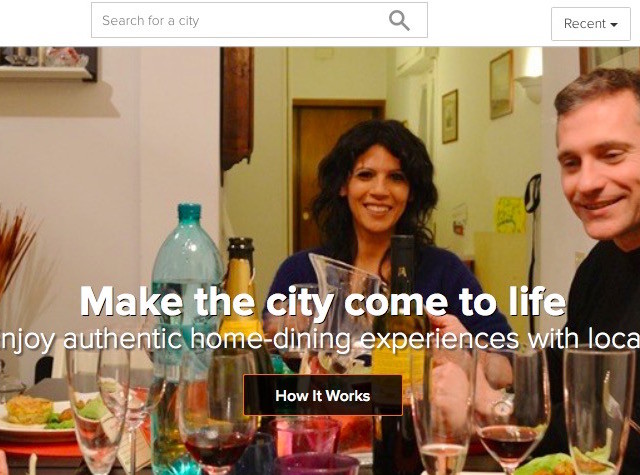
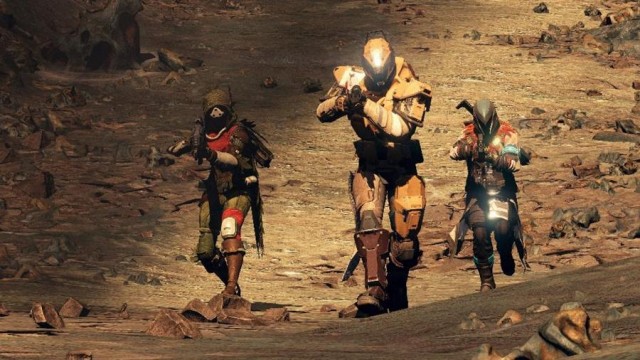 How To Spawn and Kill Taken Champions On Earth In Destiny: The Taken King
How To Spawn and Kill Taken Champions On Earth In Destiny: The Taken King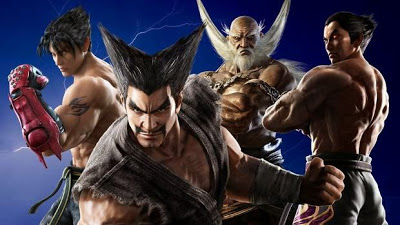 Tekken 7 Overview
Tekken 7 Overview Check out Fabolous She Wildin ft. Chris Brown
Check out Fabolous She Wildin ft. Chris Brown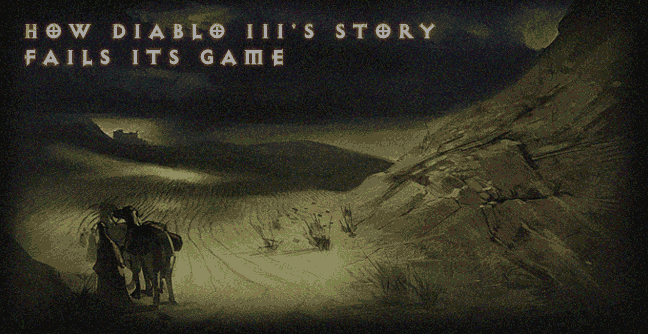 How Diablo 3s Story Fails Its Game
How Diablo 3s Story Fails Its Game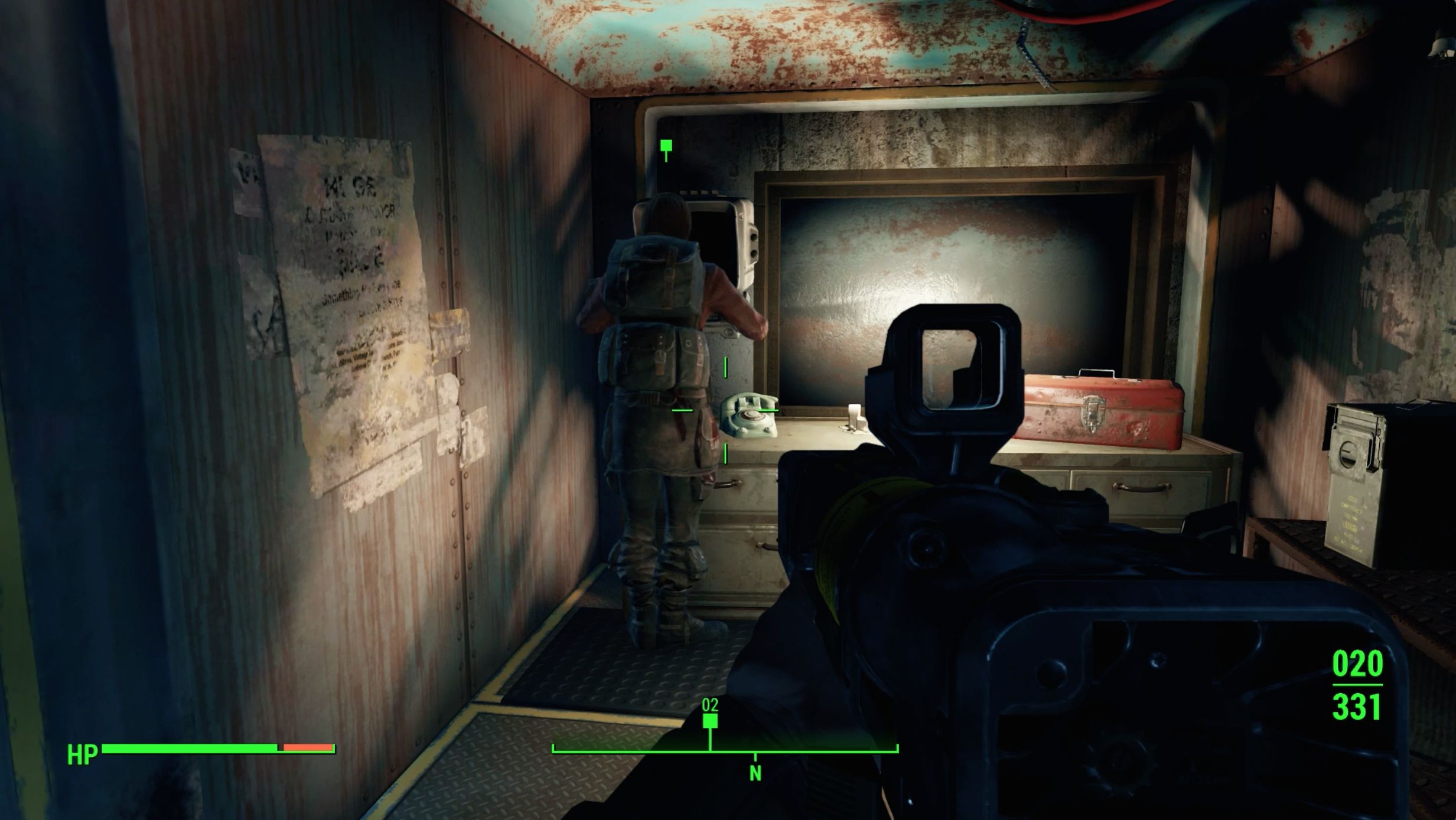 Fallout 4: Learning Curve walkthrough
Fallout 4: Learning Curve walkthrough